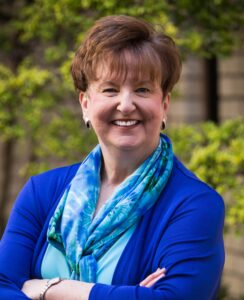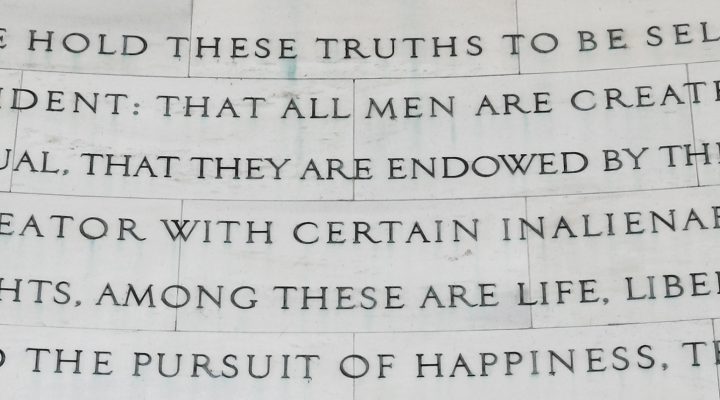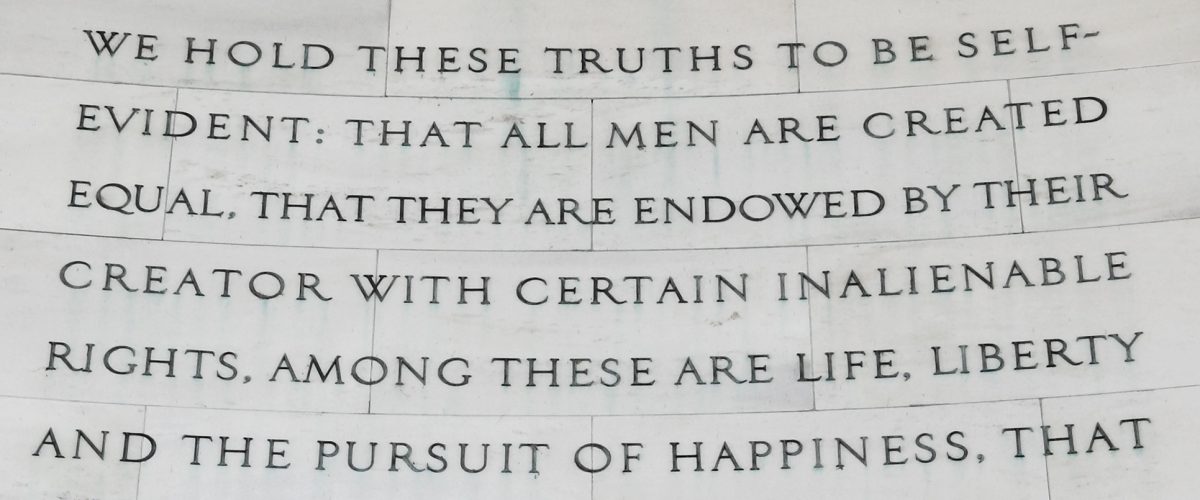The recent Supreme Court decision to reverse Roe v. Wade has reminded us that the state of women in our country is more disturbing than we might at first want to think.
Not only have the rights of women to make private decisions about their own bodies become fiercely debated again surrounding the Supreme Court’s decision, the continued sexual abuse of women by religious authorities, the uptick in sexual trafficking of women and girls and the ongoing silencing of women’s voices in the pulpit simmer ever more hotly in the background of so much of our public discourse.

Stephanie Nash
Our understanding of gender itself has become more challenging with the rise of more accurate awareness and identification of sexual diversity, a tension that surfaces with every new attempt to provide protection for those who find themselves the target of gender identity discrimination and/or hate crimes. This hostile confusion was played out onstage during the confirmation hearings of Supreme Court Justice Ketanji Brown Jackson, as the request to define the word “woman” suspended awkwardly in the air.
The ominous projection in Justice Clarence Thomas’ recent majority ruling suggests that even more restrictive curtailing of sexual diversity freedoms may be in the pipeline. We are living in anxious days, fearing a world that does not fit our traditionally defined roles, leading us all to wonder, “Will males ever consider non-males their equals?”
Much evidence today predicts the contrary, and it should really be no surprise. It is generally assumed that the drafters of our Declaration of Independence were primarily thinking about themselves and other white men when they wrote, “all men are created equal, that they are endowed by their Creator with certain unalienable Rights, that among these are Life, Liberty and the Pursuit of Happiness.”
“Our nation’s actions obviously have not caught up with that presumed intent.”
Today most of us presume their vision would expand to include all women, all genders, all races, and the general human condition, not just the male one. But our nation’s actions obviously have not caught up with that presumed intent.
The bias against women and other non-males throughout history to the present day suggests that their ongoing struggle is making very slow progress. As passionate as our voices have become concerning the value of all lives, no matter their race or gender identification, the struggle of women spans all those categories consistently, systematically and malevolently.
It only requires a brief glance at our political history to see that this disparity has been systemic. Women have been the losers in the race for equality consistently in all categories.
We finally claimed the right to vote and elected the first female (Jeannette Rankin) to Congress in 1917, 47 years after Black men were given the vote and elected the first Black male (Hiram Rhodes Revels) in 1870. The first Black female, Shirley Chisholm, didn’t earn a seat in Congress for another 52 years after that, in 1969. Thurgood Marshall was the first Black man appointed to the U.S. Supreme Court in 1967, whereas Sandra Day O’Connor was not appointed for another 14 years, in 1981. The first Black president was elected in 2008, but we have yet to elect a female president of any race.
“Our voting record makes a clear case that we continue to withhold equality and empowerment from women longer than men of any race.”
Our voting record makes a clear case that we continue to withhold equality and empowerment from women longer than men of any race. Not surprisingly, the Equal Rights Amendment, first drafted in 1923 to protect against sexual discrimination, has yet to be ratified by two-thirds of our states.
Of course, our discrimination against women exists even more clearly in religious contexts, as reinforced by the recent publication of the Baptist Women in Ministry’s State of Women in Baptist Life Report. Women continue to struggle for the most basic inclusion in church leadership roles. Several more generations will surely pass before an ordained woman will preach in most Baptist pulpits, and it is much easier to imagine the election of a pope of any color than a female one.
Ironically, white women share this plight with women of all colors in not being heard over the voices of men of any race in our conservative Baptist seminaries, pastors’ offices, deacons’ meetings and mission fields. Although they probably would be the first to refer to our Constitutional rights as divinely inspired, these Baptist men (and women) continue to deny the inalienable rights to life (if an unborn fetus or ectopic pregnancy causes a woman to die), to liberty (if a woman deserves the same paycheck as a man for the same day’s work) or to the pursuit of happiness (if that path depends on faithfully answering God’s call).
This discouraging reality is not new; it is the truth lying in plain sight, and we must respond.
To my conservative friends who espouse small government and limiting the reach of governmental control in our private lives, I say: “Get out. Get out of my doctor’s office, my pharmacist consultation, my bedroom, my public bathroom, my granddaughter’s classroom or locker room and my neighborhood school’s library. Don’t spend my tax dollars dedicated to the common good on private schools that teach white male privilege or on ballots that are harder for poor women to cast. Get out, until you can support the birth of a new government that is ‘of all the people, by all the people, and for all the people.’”
“The equality of all people, regardless of gender or race or disability or economic disparity, is indeed inalienable.”
Despite my anger and frustration, I am working to remember that as followers of Jesus, neither despair nor resignation should be our spiritual response. I believe God’s story and our story point us in a more promising and ever faithful direction, that the equality of all people, regardless of gender or race or disability or economic disparity, is indeed inalienable — unable to be given away or taken away. We don’t have to be able to define or even understand our gender to be considered equals by God.
As Martin Luther King Jr. reminded us, the arc of the moral universe may be discouragingly long, but it does bend eventually toward the justice we all inherently claim. As disappointing as our track record may be, our faith teaches us that the seeds of our identity and equity are planted in the heart of our sacred texts, and our deep longing for our own inalienable freedoms will lead us home to life, liberty and the pursuit of happiness for all, eventually and inevitably.
We must tend those seeds and nurture that possibility for God’s promise to thrive. We must be willing to speak, ready to protest or protect, and courageous to act. But the soul feels its worth, and as long as the baptismal waters are open to all of God’s children, there is hope. This is our sacred inheritance: God’s image bears no gender.
Stephanie Nash is a retired pastor of Second Baptist Church in Lubbock, Texas, where she served on the pastoral team for 19 years. She earned a master of divinity degree from Logsdon Theological Seminary, a master’s degree in English from Texas Tech University and a bachelor’s degree from Baylor University. Her career also included 25 years of teaching high school English before entering the ministry. She and her husband Paul enjoy splitting their time between their mountain home in New Mexico and their family and grandkids in Lubbock.
Related articles:
I pray for a day when the ordination of women is no longer a concern | Opinion by Amanda Clark
This is my body | Opinion by Hannah Coe
Women in ministry face daily slights that add up, BWIM leaders explain
Annual report on Baptist women in ministry finds some gains but serious losses due to COVID


